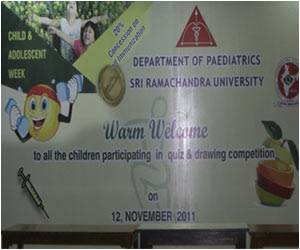
The researchers were interested in whether an intervention called the Family Check-Up (FCU), a short program that provides feedback and skill training for parents, could mitigate some of the troubles many parents and teens face.
"We hypothesized that we would find significant intervention effects on all four outcomes-family conflict, parental monitoring, antisocial behaviour and alcohol use," Newswise quoted Mark J. Van Ryzin, lead author of the study as saying.
"We were pleased that these hypotheses were confirmed," he said.
Van Ryzin and his colleagues followed 593 seventh and eighth graders and their families in a randomised controlled trial, with families assigned either to participate in the FCU program or to a control group of "school as usual" students at three public schools in the Pacific Northwest.
They gathered data primarily from students' self-reports to provide a broad assessment of family interaction. Researchers also videotaped parents interacting with their teens at home and school. Both parents and teens received comprehensive feedback about their interaction with each other.
Advertisement
"Most adolescents with behavioural problems see professionals after they are in trouble instead of beforehand, which is why this program is unique; there are few preventive programs like it," Garry Sigman, director of adolescent medicine at Loyola University Medical Center in Chicago, said.
Advertisement
While no simple answer exists for decreasing teenagers' behavioural problems, Sigman said, "I only wish more young adolescents would have the opportunity for their parents to get the type of education offered by the Family Check-Up. To be sure, it doesn't happen very often in primary care offices."
Sigman said he helps parents understand that adolescence is not a time to pull back on involvement in their children's lives.
"I suggest parents know where their teens are, have curfew rules, and make their values and wishes explicit regarding teen drinking, substance use and sex," he said.
Van Ryzin concluded that family intervention is essential for adolescents.
"If support and services like the Family Check-Up are available, it can help implement reasonable strategies for change," Van Ryzin said.
"The key is to involve the whole family in the process, not just the adolescent," he added.
The study has been published online in the Journal of Adolescent Health.
Source-ANI









